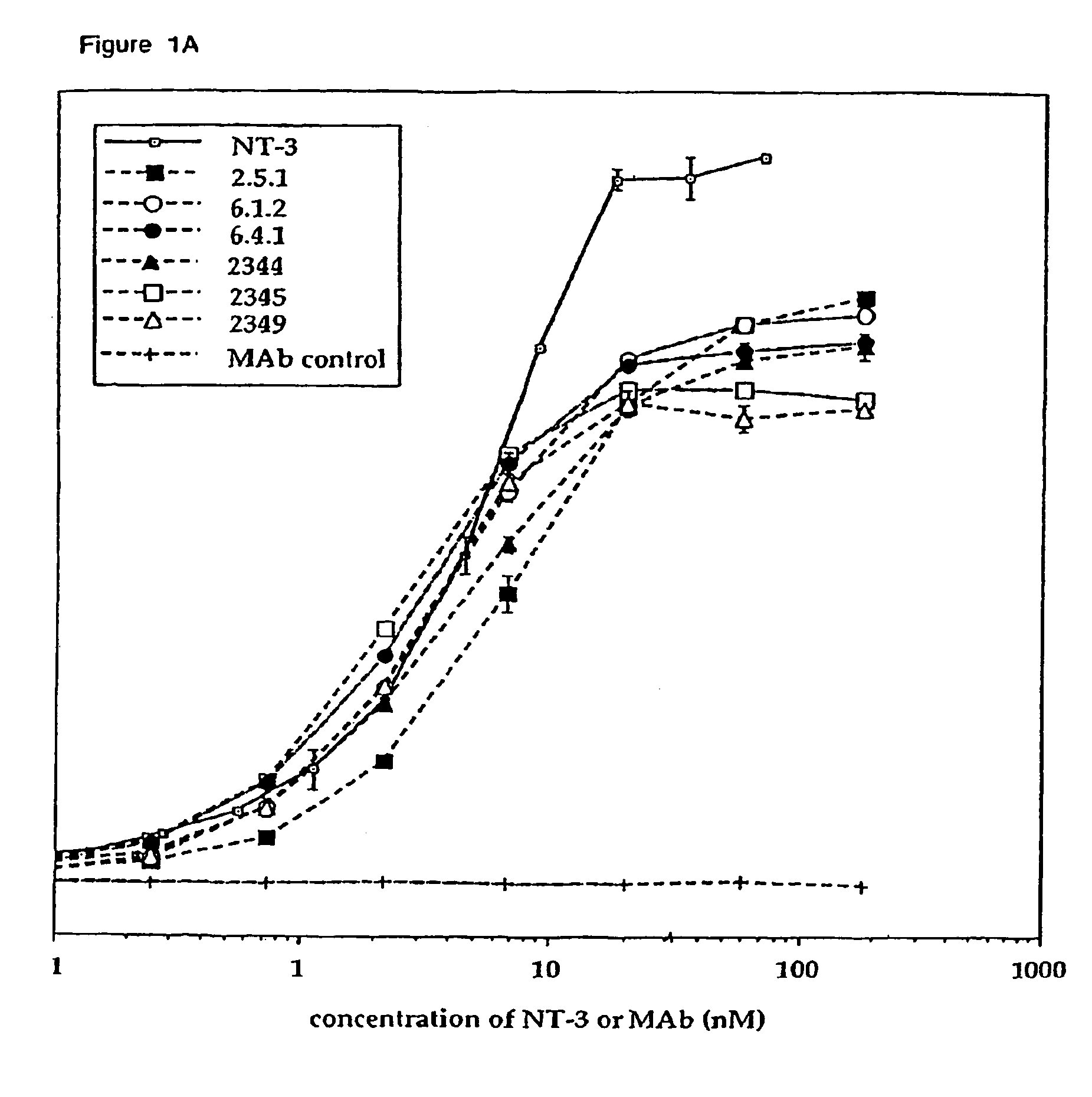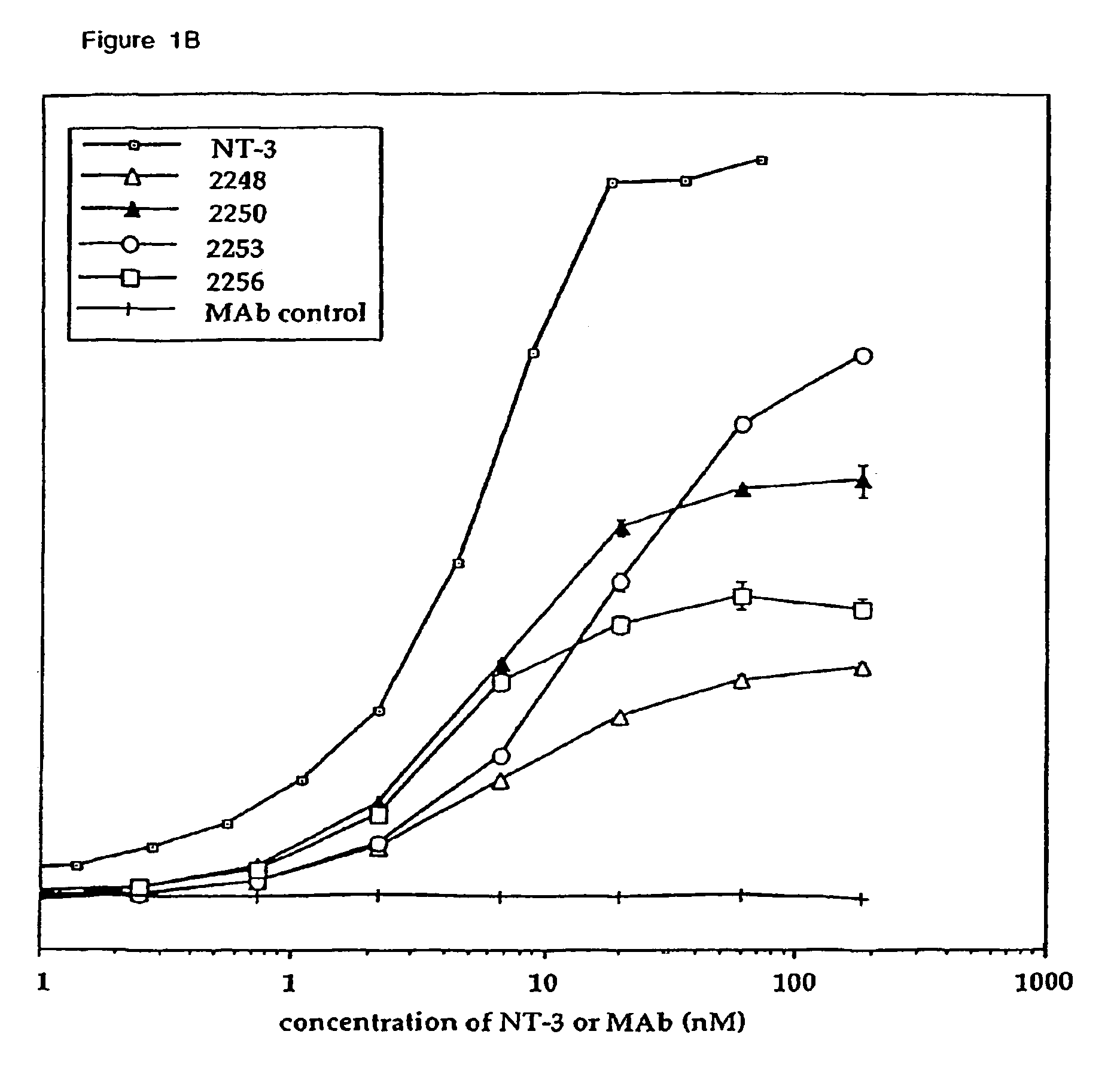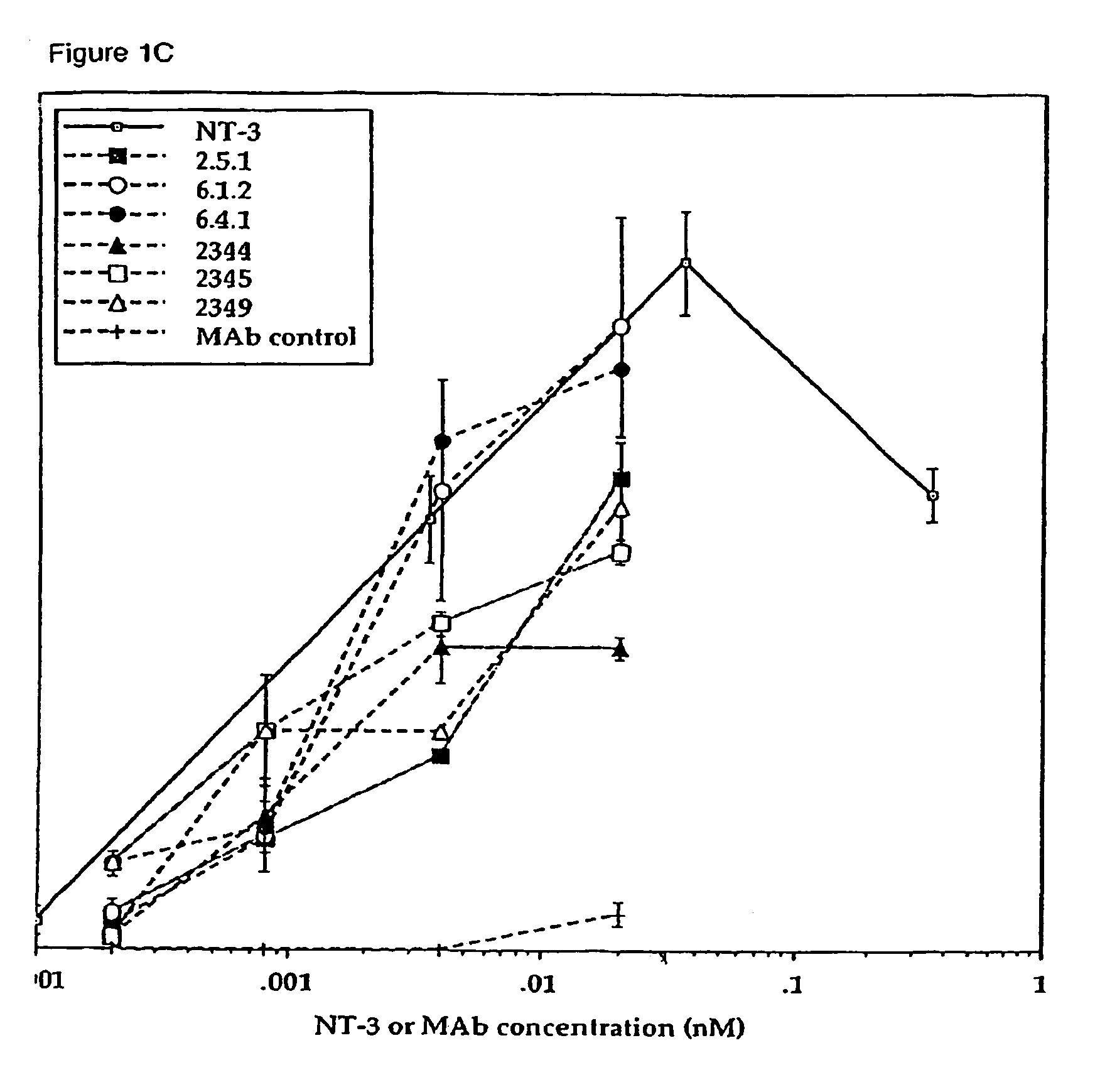Methods for treating neuropathy by agonist anti-trk-C monoclonal antibodies
a monoclonal antibody and neuropathy technology, applied in the field of agonist antitrkc monoclonal antibodies, can solve the problems of difficult to devise therapies that target a specific population of neurons, neurotrophin therapy, neurotrophins, etc., and achieve the effects of improving bioavailability, preventing and/or treating, and superior properties over nt-3
- Summary
- Abstract
- Description
- Claims
- Application Information
AI Technical Summary
Benefits of technology
Problems solved by technology
Method used
Image
Examples
example 1
Production and Characterization of Agonist Anti-trkC Monoclonal Antibodies
[0236]Production and Isotyping of Antibodies
[0237]Wild type Balb / C mice and transgenic mice producing human IgG2 or IgG4 (Xenomice, described in Mendez et al., Nature Genetics 15: 146-156 [1997]) were hyperimmunized either intraperitoneally, via rear footpad, or subcutaneously with 20 μg of human trkC-IgG (Shelton et al., J. Neurosci. 15: 477-491 [1995]) in either Frieund's or Ribi adjuvant as described in Mendez et al. (supra). Spleen cells from the immune mice were fused with myeloma cells (X63.Ag8.653, ATCC Rockville, Md.). A total of 33 fusions were performed using 253 Xenomice and 35 wild type Balb / C mice. Plates (21,734 wells total) were initially screened by direct ELISA using trkC-IgG. The ELISA screen identified 684 trkC positive hybridomas, all of which were then evaluated for agonist activity in trkC KIRA (Kinase activated Receptor Assay). The KIRA identified 14 Xenomouse derived and 22 wild type Ba...
example 2
Effect of Agonist Anti-trkC Monoclonal Antibodies on Neuropathies in Experimental Animal Model
[0274]The principal use of NT-3 agonists is in the treatment and / or prevention of peripheral neuropathies. It is known that large fiber myelinated sensory neurons, which are involved in mediating proprioception and vibration sense, express trkC that acts as a high affinity receptor for NT-3. Neuropathies involving these large fibers are common in diabetes and are also induced in response to certain chemotherapeutic agents particularly cisplatin and pyridoxine. NT-3 has shown efficacy in animal models of experimental diabetic neuropathy and cisplatin induced neuropathy. However, the use of NT-3 is severely hampered by its poor bioavailability as shown in a rodent model. The use of anti-trkC monoclonal antibodies as agonist of NT-3 offers numerous advantages and obviates a number of potential problems associated with the use of NT-3.
[0275]The in vivo half-life of agonist anti-trk monoclonal a...
PUM
 Login to View More
Login to View More Abstract
Description
Claims
Application Information
 Login to View More
Login to View More - R&D
- Intellectual Property
- Life Sciences
- Materials
- Tech Scout
- Unparalleled Data Quality
- Higher Quality Content
- 60% Fewer Hallucinations
Browse by: Latest US Patents, China's latest patents, Technical Efficacy Thesaurus, Application Domain, Technology Topic, Popular Technical Reports.
© 2025 PatSnap. All rights reserved.Legal|Privacy policy|Modern Slavery Act Transparency Statement|Sitemap|About US| Contact US: help@patsnap.com



